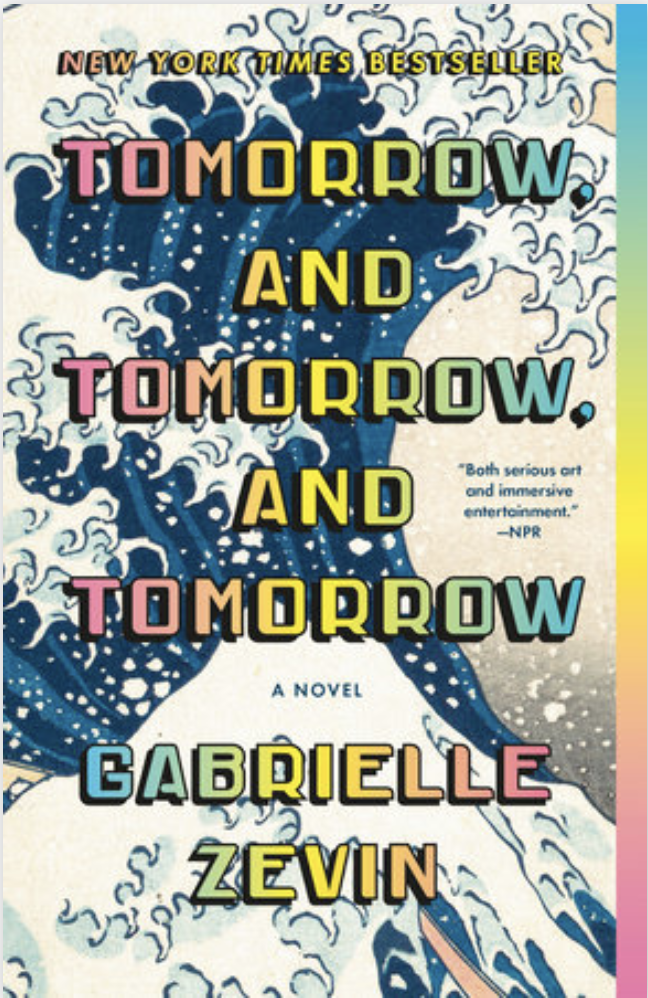Therapy is one of the most creative professions in our modern world. In our work together we may draw on art, movies, literature, philosophy, or poetry. This creative process honors the human spirit and its resilience. I am committed to being a lifelong learner so that I can be as useful and collaborative as possible. Below are some current influences in my personal growth.
Tomorrow, and Tomorrow, and Tomorrow by Gabrielle Zevin
Gabrielle Zevin’s Tomorrow, and Tomorrow, and Tomorrow is about two childhood friends, Sam and Sadie, who reunite in college and embark on a decades-long creative partnership as video game designers. On the surface, it’s a story about building games, navigating the boom of the gaming industry from the 1990s into the 2010s, and the ups and downs of artistic collaboration. But at its heart, the novel is an exploration of deeper themes: what it means to create, how friendship can be as binding and complex as romantic love, and how art offers both refuge and connection in the face of loss, pain, and the passage of time.
The book grapples with questions like: Can collaboration endure when egos and ambitions clash? How do we live with grief and still find ways to make beauty? What does it mean to experiment, succeed, fail, begin again? Zevin uses the language and structure of video games as a metaphor for human relationships and resilience, suggesting that while we can’t escape mortality or heartbreak, we can keep choosing to create and connect, again and again.
Articles and Research Around Psychology
Ask the Therapist by Lori Gottlieb - “My Boyfriend Lacks Ambition. Is That a Deal Breaker?”
In this Ask the Therapist column, Lori Gottlieb responds to a reader worried that her boyfriend’s relaxed approach to work shows a lack of ambition. Raised to equate constant productivity and income with success, the reader feels uneasy that her partner finishes his tasks and rests without guilt. Gottlieb suggests the real issue isn’t his habits but the reader’s inherited beliefs about worth and achievement. She frames his boundaries as healthy, noting the reader’s judgment may hide envy for his balance. The advice: examine your own values, talk openly about what fulfillment means, and consider whether a broader definition of success could make your differences complementary rather than a deal breaker.
What Sports Psychologists Want You to Know About Mental Toughness
The New York Times article “Sport Psychology Tips for Everyday Life” (August 21, 2025) explores how mental strategies developed for elite athletes can benefit anyone facing high-stakes or stressful situations. It emphasizes that tools like visualization, positive self-talk, pre-performance routines, and focus techniques are not just for competition but can help people manage nerves, build resilience, and perform more effectively in daily life. At its core, the piece underscores that cultivating mental composure and adaptability is as crucial as physical preparation, and that the same skills athletes use to thrive under pressure can be harnessed to improve clarity, confidence, and well-being in everyday contexts.
